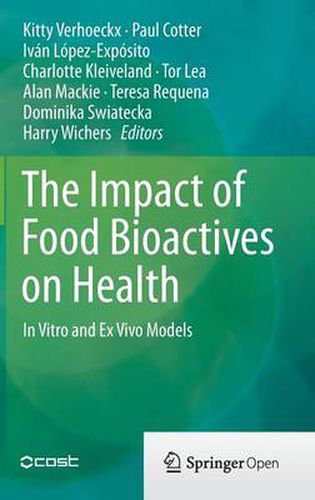Readings Newsletter
Become a Readings Member to make your shopping experience even easier.
Sign in or sign up for free!
You’re not far away from qualifying for FREE standard shipping within Australia
You’ve qualified for FREE standard shipping within Australia
The cart is loading…






Infogest (Improving Health Properties of Food by Sharing our Knowledge on the Digestive Process) is an EU COST action/network in the domain of Food and Agriculture that will last for 4 years from April 4, 2011. Infogest aims at building an open international network of institutes undertaking multidisciplinary basic research on food digestion gathering scientists from different origins (food scientists, gut physiologists, nutritionists…). The network gathers 70 partners from academia, corresponding to a total of 29 countries. The three main scientific goals are: Identify the beneficial food components released in the gut during digestion; Support the effect of beneficial food components on human health; Promote harmonization of currently used digestion models Infogest meetings highlighted the need for a publication that would provide researchers with an insight into the advantages and disadvantages associated with the use of respective in vitro and ex vivo assays to evaluate the effects of foods and food bioactives on health. Such assays are particularly important in situations where a large number of foods/bioactives need to be screened rapidly and in a cost effective manner in order to ultimately identify lead foods/bioactives that can be the subject of in vivo assays. The book is an asset to researchers wishing to study the health benefits of their foods and food bioactives of interest and highlights which in vitro/ex vivo assays are of greatest relevance to their goals, what sort of outputs/data can be generated and, as noted above, highlight the strengths and weaknesses of the various assays. It is also an important resource for undergraduate students in the ‘food and health’ arena.
$9.00 standard shipping within Australia
FREE standard shipping within Australia for orders over $100.00
Express & International shipping calculated at checkout
Infogest (Improving Health Properties of Food by Sharing our Knowledge on the Digestive Process) is an EU COST action/network in the domain of Food and Agriculture that will last for 4 years from April 4, 2011. Infogest aims at building an open international network of institutes undertaking multidisciplinary basic research on food digestion gathering scientists from different origins (food scientists, gut physiologists, nutritionists…). The network gathers 70 partners from academia, corresponding to a total of 29 countries. The three main scientific goals are: Identify the beneficial food components released in the gut during digestion; Support the effect of beneficial food components on human health; Promote harmonization of currently used digestion models Infogest meetings highlighted the need for a publication that would provide researchers with an insight into the advantages and disadvantages associated with the use of respective in vitro and ex vivo assays to evaluate the effects of foods and food bioactives on health. Such assays are particularly important in situations where a large number of foods/bioactives need to be screened rapidly and in a cost effective manner in order to ultimately identify lead foods/bioactives that can be the subject of in vivo assays. The book is an asset to researchers wishing to study the health benefits of their foods and food bioactives of interest and highlights which in vitro/ex vivo assays are of greatest relevance to their goals, what sort of outputs/data can be generated and, as noted above, highlight the strengths and weaknesses of the various assays. It is also an important resource for undergraduate students in the ‘food and health’ arena.